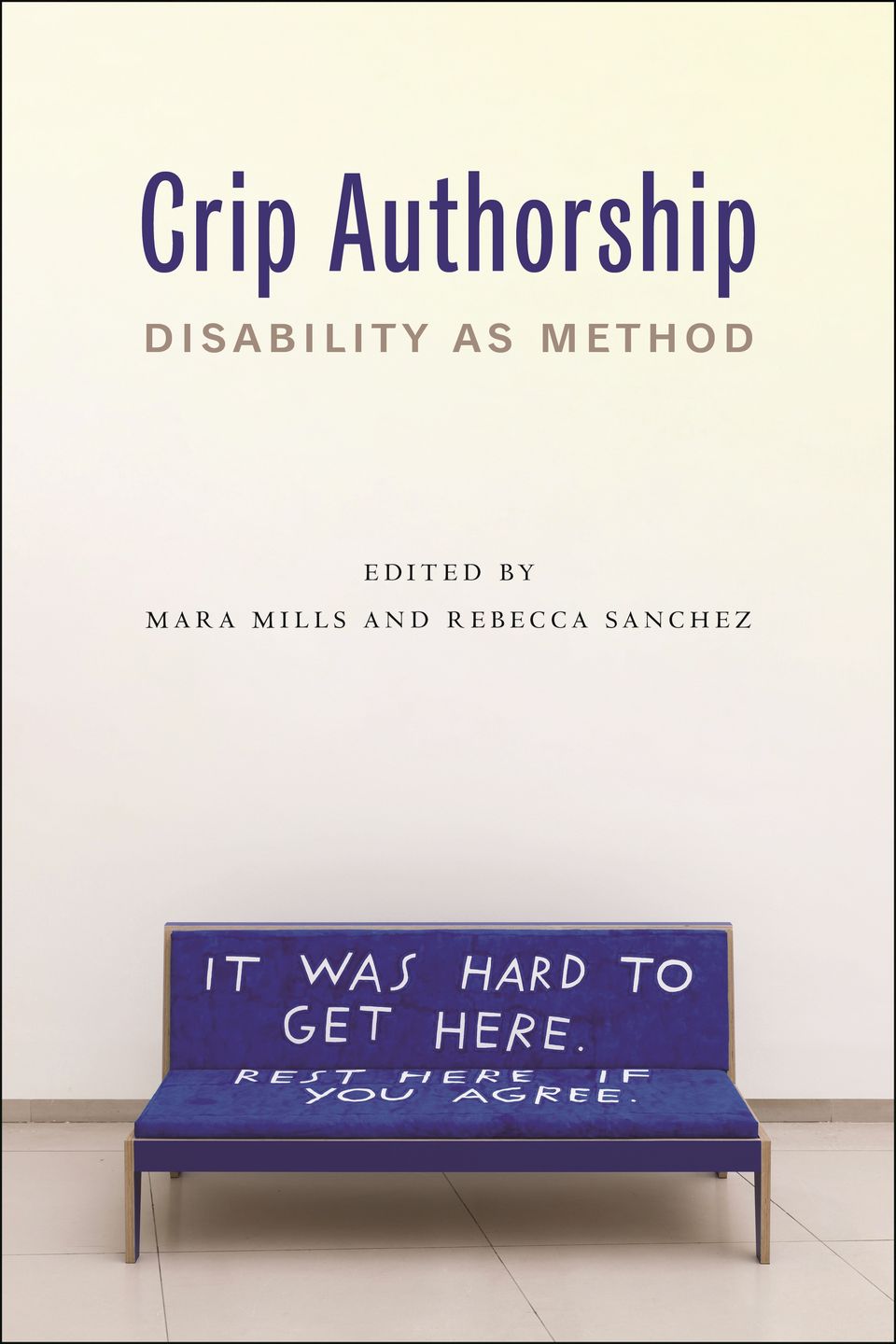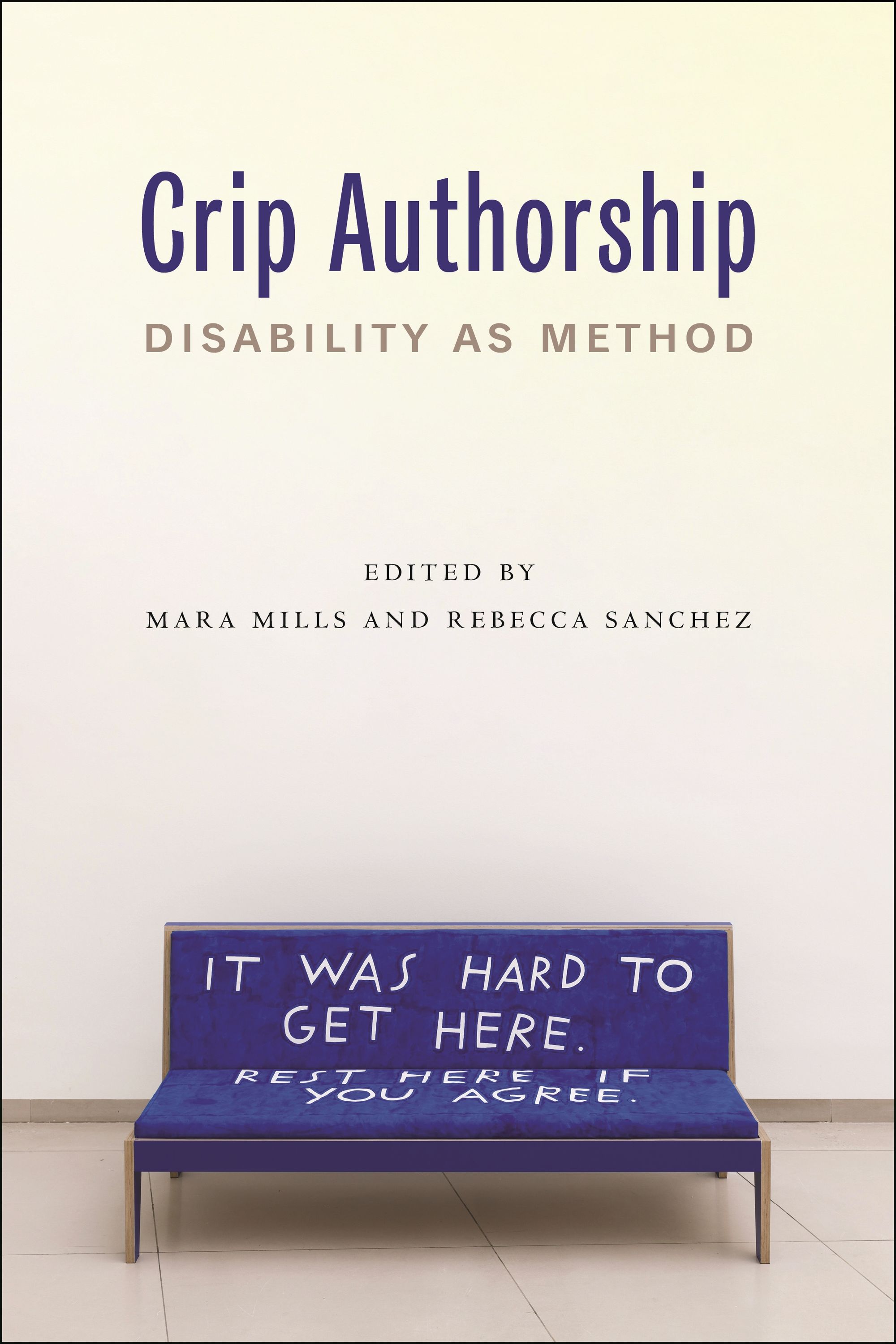Crip Authorship: Disability as Method

Friends, can you believe fall is upon us? Wild. Disability is absolutely a method, an approach, a philosophy, a way of life. I'm pleased to offer 5 paperbacks or e-books of Crip Authorship: Disability as Method published by NYU Press edited by Mara Mills and Rebecca Sanchez. Details below.
About the book
Crip Authorship: Disability as Method is a comprehensive volume presenting the multidisciplinary methods brought into being by disability studies and activism. Mara Mills and Rebecca Sanchez have convened leading scholars, artists, and activists to explore how disability shapes authorship, transforming cultural production, aesthetics, and media.
Starting from the premise that disability is plural and authorship is an ongoing project, this collection of thirty-five compact essays asks how knowledge about disability is produced and shared in disability studies. Crip authorship takes place within and beyond the commodity version of authorship, in books, on social media, and in creative works that will never be published. Crip authorship celebrates people, experiences, and methods that have been obscured; it also involves protest and dismantling. It can mean innovating around accessibility or attending to the false starts, dead ends, and failures resulting from mis-fit and oppression.
The chapters draw on the expertise of international researchers and activists in the humanities, social sciences, education, arts, and design. Across five sections—Writing, Research, Genre/Form, Publishing, Media—contributors consider disability as method for creative work: practices of writing and other forms of composition; research methods and collaboration; crip aesthetics; media formats and hacks; and the capital, access, legal standing, and care networks required to publish. Designed to be accessible and engaging for students, Crip Authorship also provides theoretically sophisticated arguments in a condensed form that will make the text a key resource for disability studies scholars.
Essays include Mel Y Chen on the temporality of writing with chronic illness; Remi Yergeau on perseveration; La Marr Jurelle Bruce on mad Black writing; Alison Kafer on the reliance of the manifesto genre on conceptualizations of disability; Jaipreet Virdi on public scholarship for disability justice; Ellen Samuels on the importance of disability and illness to autotheory; Xuan Thuy Nguyen on decolonial research methods for disability studies; Emily Lim Rogers on virtual ethnography; Cameron Awkward-Rich on depression and trans reading methods; Robert McRuer on crip theory in translation; Kelsie Acton on plain language writing; and Georgina Kleege on description as an access technique.

About the editors
Mara Mills is Associate Professor in the Department of Media, Culture, and Communication at New York University, where she co-founded and co-directs the Center for Disability Studies. She is co-editor of Testing Hearing: The Making of Modern Aurality and (with Rebecca Sanchez) the republication of Pauline Leader’s And No Birds Sing.
Rebecca Sanchez is Professor of English and director of the disability studies program at Fordham University. She is the author of Deafening Modernism: Embodied Language and Visual Poetics in American Literature and (with Mara Mills) co-editor of the republication of Pauline Leader’s And No Birds Sing.
Details
1) Any disabled person in the US, UK, or Canada is eligible for this giveaway. You do not need to disclose any details about your disability.
If you already received a book from one of my previous giveaways, please consider letting other people have a chance.
2) The first 5 people will receive a paperback or e-book. If you do not receive a reply that means the books have been claimed or you did not include all the required information.
3) Send an email to DisabilityVisibilityProject@gmail.com with ‘Mills and Sanchez Giveaway’ in the title of the message. Do not reply to this post!!
4) Include the following information in your message:
- First and last name
- Mailing address
- Format: paperback or e-book. Pick one only.
Please note: I will send this information along with your email address to the publisher. They are responsible for confirming your details and sending you the book. Please be patient!
Member discussion